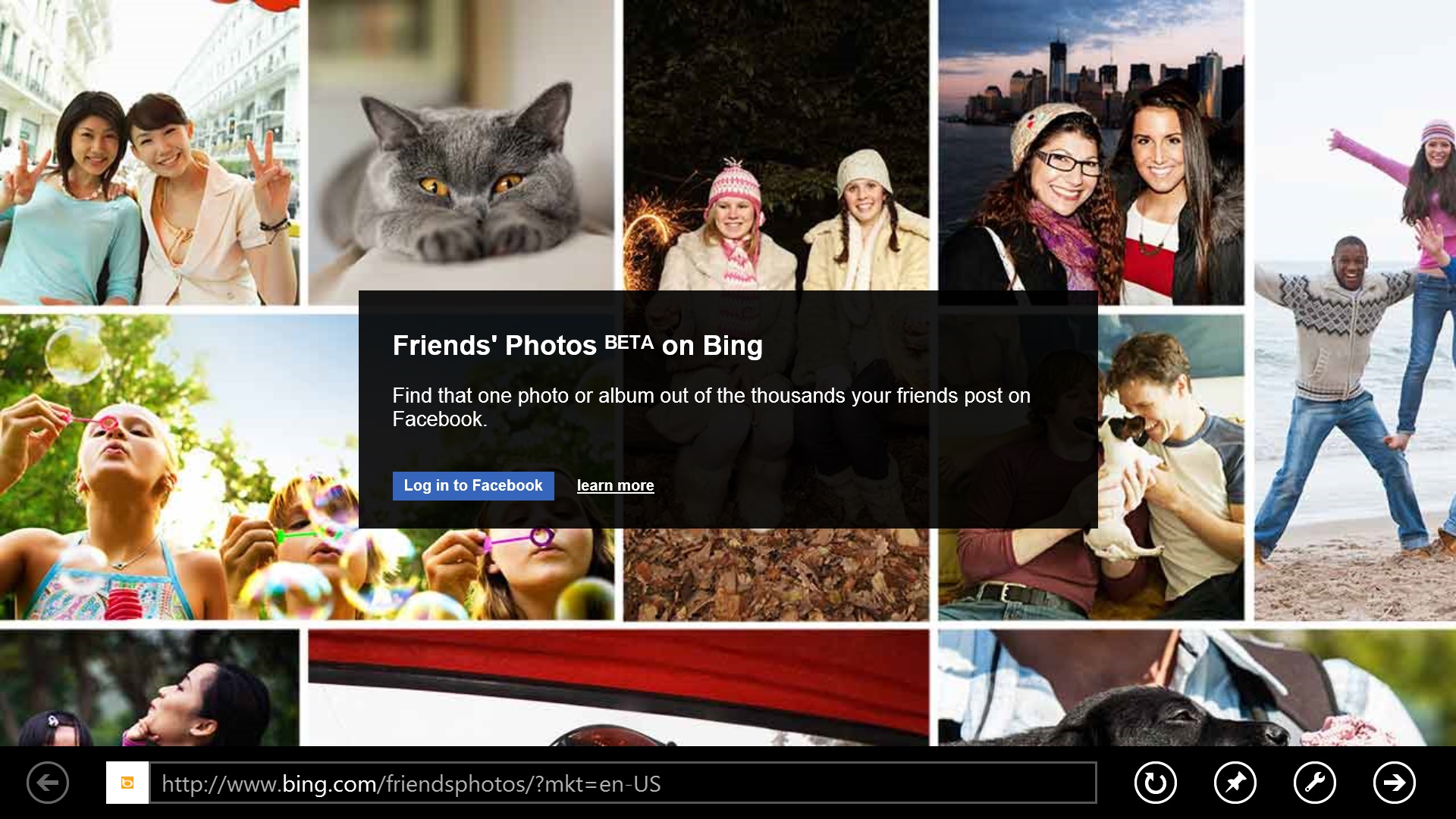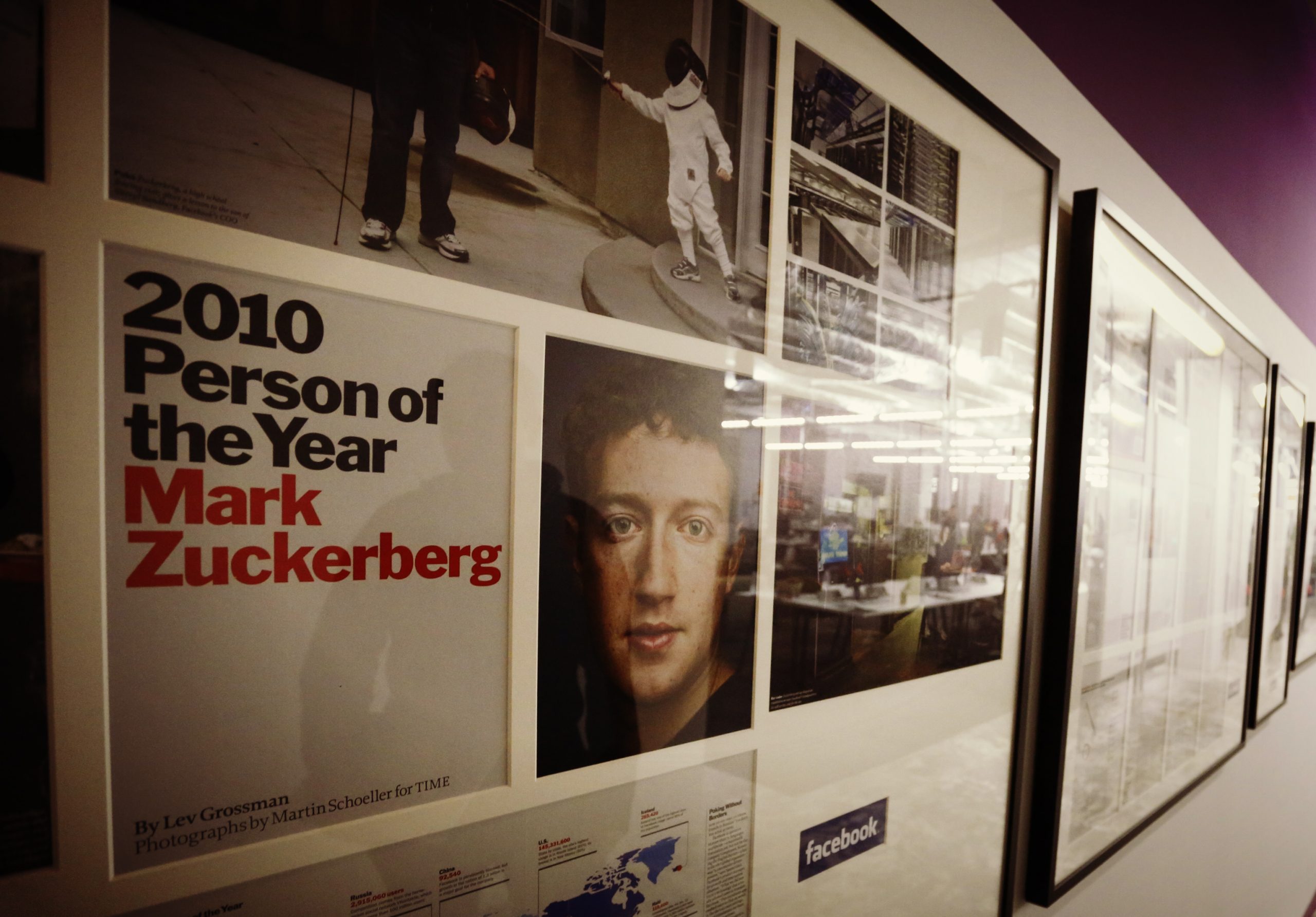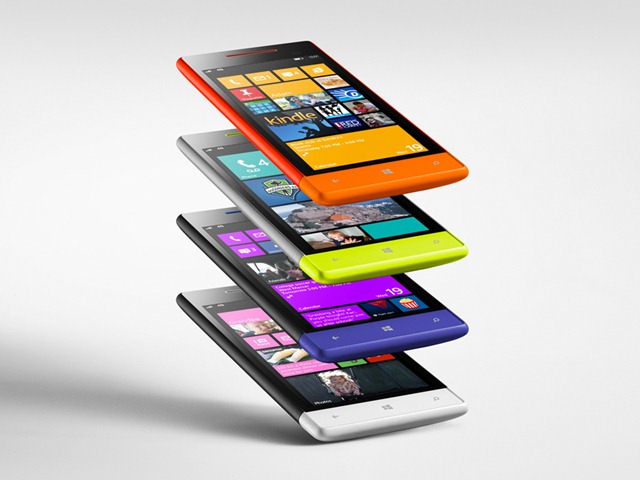
Suddenly, Facebook looks more like Google+, only better
Today, the world's largest social network announced a sweeping overhaul to major UI motif News Feed. Photos are bolder -- as are advertisements -- and white space more generous. But the big change is uniformity, as Facebook offers a fairly consistent visual experience across devices. That's a claim Google can't make.
Still, Facebook looks lots more like Google+ -- or will once changes roll out to everyone. That's a good thing. Clutter creep long defines the Facebook user experience, something its rival avoids. Well, so far. But the larger social network isn't copying Google+ so much as acting out of necessity. All that clutter in the browser overwhelms smaller device screens, particularly smartphones. To get similar UI across devices, something had to go -- and come, too.

Nokia photo app begs Facebook to bring Instagram to Windows Phone
Windows Phone users have many of the apps they need -- though not always the official ones. However, one noticeable service is lacking -- Instagram has yet to release a client for Microsoft's mobile platform. Given that the software giant spent $240 million to purchase a stake in the social network back in 2007, and that Facebook now owns Instagram, that has to sting a bit. Then again, Microsoft writes the Facebook for Windows Phone app, but let's not chuck salt on wounds by going there.
Nokia, the flagship handset maker for Windows Phone, is apparently so desperate to right this perceived wrong that it wrote an app to fill the gap. "Many of you have asked when Instagram will be coming to Windows Phone, and the #2InstaWithLove app was created as a way for you to have your voice heard. The app allows you to take a photo using the classic polaroid filter and automatically adds the hashtag #2InstaWithLove".

Vintage Camera is not violating any Facebook Platform Principles
Editor's Note: Muted in the noise from Mobile World Congress is an interesting drama between developer Presselite Studio and Facebook. Apparently, the social network, which bought Instagram in April 2012, is blocking Vintage Camera. The scuffle raises questions about Facebook clamping down on competing products, which, if true, should chill every developer. Apple favoring its stuff over partners' products is old news. Is this really where Mark Zuckerberg and company want to go? Perhaps it's all a misunderstanding. We asked Antoine Morcos, Presselite cofounder, to make his case. If screenshots can tell a story...
Facebook has decided to disable and block "Photo Sharing on Facebook" feature in Vintage Camera application available for iPhone and iPad. The reason for the app being denied of uploading photos, according to Facebook, is that it was receiving a "high amount of negative user feedback", which is not true...

Google+ Sign-In is a Facebook killer
Single sign-on. Universal log-in. It is the Holy Grail of Internet services. Coming into the new century, Microsoft planned to use Passport as a universal, single sign-on authentication system aligned with Windows. Following privacy group complaints, a Federal Trade Commission investigation and subsequent settlement, Microsoft backed off the authentication strategy. A decade later, Facebook emerged as contender; many sites or services request, and some even require, signing in with Facebook credentials. Twitter is another option, and there are other choices, such as OpenID.
Now Google comes calling, today adding Google+ Sign-In as an option developers can include with their apps. I cannot overstate just how bold and disruptive the authentication system could be, or how much Google could -- scratch that, most likely will -- benefit. If widely adopted, the service could, if nothing else, give Google+ huge lift against Facebook. Welcome to the social network wars, and my money is on the the big G winning because Android, search and other assets offer so much leverage.

Bing makes it easier, perhaps scarier, to discover photos
Bing's "Friends Photos" is not new, but today Microsoft's search engine rolled out a major update to the service that MK Li, program manager of Bing Social, termed as an "experience which makes it easier to scan, discover and explore your friends’ photos".
So what has Microsoft added? For one, a new look and interface. The service now displays in the "Modern UI" type of format, much the same way as Windows 8 and Windows Phone. The search results in a tiled interface that, according to Li, "marries design and performance, making it faster and more seamless to browse your friends’ photos".

More Americans take Facebook vacations
That's not on the social network but away from it. Bad for Facebook: The youngest, and presumably most active users, are the most likely to step away this year for prolonged breaks, according to Pew Internet.
"Sixty-one percent of current Facebook users say that at one time or another in the past they have voluntarily taken a break from using Facebook for a period of several weeks or more", according to report "Coming and Going on Facebook", which published this week.

Four things that Microsoft needs to fix in Windows Phone 8
Coming from Android or iOS, Windows Phone 8 is an eye-opening smartphone operating system. It sets the bar pretty high when it comes to looks and performance -- the design is simply beautiful and refreshing, and the software responsive and fluid -- but it never really manages to outshine its main rivals. After living with the HTC Windows Phone 8X for a while, I can't help but notice glaring oversights in an otherwise solid proposition. The package is not complete.
You see, being pretty and going fast does not cut it among the fierce world of Android and iOS. Microsoft needs to take a good look around and take charge by solving the shortcomings of Windows Phone 8. Fact is, it's easy to pick faults with the immature app selection, like many journalists do, but that's more of a chicken and egg problem. What the software giant has to do is build on the current platform by offering better basic functionality, functionality that's necessary for a greater user experience.

The latest Facebook privacy flaw is a doozy
Over the past couple of years there has been no shortage of talk about privacy, particularly when it comes to social networks, and especially Facebook. In fact, the service recently made news when the site's privacy settings famously bit founder Mark Zuckerburg's own sister.
Facebook has worked to make its privacy settings easier to understand for everyday users, and to a certain extent has succeeded, but fatal flaws still seem to rear their ugly heads.

What is Facebook building?
I like a good mystery. When Samsung teased us with ‘something new’ I wanted to know what it was (I’m still not entirely sure, to be honest, given Samsung announced so many products at CES). When Microsoft says it’s sold 60 million licenses I want to know how many of those were sold to consumers (Microsoft remains tight lipped).
And now a new mystery has arrived to pique my interest, this time courtesy of Facebook. The social network has sent out invitations to the press inviting us to a media event at its Menlo Park, Calif., headquarters on January 15 to "see what we're building". Since press events are rarely held at Facebook's corporate HQ, it’s likely to be something big.

Meme of the year: Grumpy Cat
[portfolio_slideshow id=120704]
Psy's Gangnam Style may be the most popular YouTube video of all time, with 1.05 billion views, but there are other measures of popularity that say much about other things. In the old days of comedy, being mocked by talk show hosts like Conan O`Brien is one example. But in the social era, where anyone can be a comedian and the hive mind collectively produces one, memes rule. One clearly stands above all others, at least during second half of 2012: Grumpy Cat.

Instagram has a problem
Angry users say they will ditch Instagram over policy changes granting the service the rights to use their photos. Of course, what people say they will do in the heat of the moment isn't necessarily what they eventually do, especially when extra effort is required -- in this case, recovering images from the service. Still, among respondents to a BetaNews poll, the number planning to keep Instagram is statistically zero (5 votes). Forty percent will stop using or cancel the service. However, a much larger number, 60 percent, already aren't users.
The Instagram backlash is nothing but fierce, for terms like these: "Instagram does not claim ownership of any Content that you post on or through the Service. Instead you hereby grant to Instagram a non-exclusive, fully paid and royalty-free, transferable, sub-licensable, worldwide license to use the Content that you post on or through the Service". The photo-sharer later claimed misunderstanding and poor wording, but you tell me what's unclear here.

Instagram concedes nothing
By now most of us have read or heard that Instagram (now part of Facebook) proposes a change to its terms of service to allow the company to use your pictures and mine in any fashion it chooses, including selling the pics to third parties. So if you don’t want your baby pictures to risk being used in a beer ad, we’re told, you should close your Instagram account by January 15th. One pundit called this move Instagram committing suicide, but I think something else is going on.
Can’t you just see the meeting at Facebook in which this idea was first presented? ”It’s a whole new revenue stream!” some staffer no doubt howled. “If our users are oblivious or stupid enough to let us get away with it, that is. Maybe we can sneak it through over Christmas”. We’ll see shortly, won’t we?

Mark Zuckerberg can take his billions to hell, I'm done with Facebook
I joined Facebook on Sept. 30, 2006 -- that's four days after opening to the public. The service promised so much, and I was excited by this compelling competitor to MySpace, which let customization run amok. But within short time, my interested declined; over the years I've come to loathe Facebook, which user interface is among the worst ever, as the site increasingly clutters with distracting elements. MySpace is now clean by comparison. Far worse: Privacy settings too often change, and what's different is often lost, even if temporarily, in the grotesque layout.
Overnight, Instagram, which Facebook now owns, announced radical rights policy changes starting in mid-January. The photo-sharing service grants itself a perpetual license to use and to sell your content. No permission required. That's one policy change too many for me. On December 9, I posted to Google+ my intentions to give up Facebook on the last day of the month. I thought more to empty the account of friends, information and content but not cancel -- for sentimental reason of having joined so much earlier than most everyone else. My intentions changed. I'm done with Facebook on December 31. I'd cancel today, but want intimates -- family and close friends -- to have forewarning.

Tell us what you think about Instagram's new 'screw you' policy
If you're planning to Instagram lots of photos this holiday, think again. They might be in next year's commercial marketing -- your embarrassing candid plastered on billboards everywhere -- and you have no real say about it. Big companies use the Digital Millennium Copyright Act of 1998 to keep you from sharing stuff. Instragram takes away such recourse for you, overnight announcing one of the biggest rights policy changes of the contextual cloud computing era. The photo-sharing site claims the right to sell your content, offering you absolutely no compensation for the privilege.
The change is snakey sneaky: "Instagram does not claim ownership of any Content that you post on or through the Service. Instead you hereby grant to Instagram a non-exclusive, fully paid and royalty-free, transferable, sub-licensable, worldwide license to use the Content that you post on or through the Service", but "Instagram Content is protected by copyright, trademark, patent, trade secret and other laws, and, as between you and Instagram, Instagram owns and retains all rights in the Instagram Content and the Service". You give up your rights to ownership simply by using the service, which gives you nothing.

Facebook releases its 2012 hot topics list
The trend for tech companies in the past few days has been to, well, release lists of trends for the past year. Today Facebook joins Google, Twitter, Yahoo and others in releasing its list of the most talked about stories of 2012. Let's face it though, these lists rarely vary no matter if it's a search engine or a social media website. What people search for most tends to also be what they are talking about the most.
Still, Facebook is one of the biggest influencers on the web right now. Consequently the data the company releases carries some weight.
